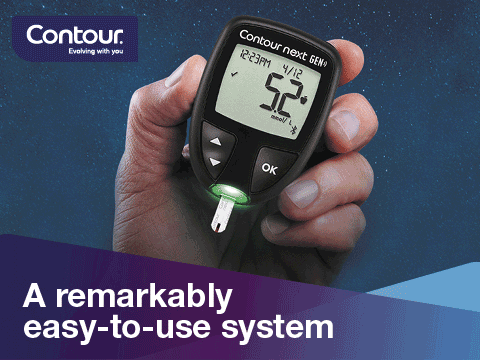
What is gastroparesis?
Many people with diabetes experience digestive problems, such as constipation, bloating or nausea. Diabetes and upset stomach symptoms may be due to a condition called gastroparesis (also known as delayed gastric emptying). Gastroparesis is a chronic disorder of the digestive tract that causes food to remain in the stomach longer than it should.
Gastroparesis is common in people with diabetes. It affects between 27% and 58% of people with type 1 diabetes and 30% of those with type 2 diabetes. Read on to learn about diabetes and upset stomach.
What are the symptoms of gastroparesis?
The symptoms of gastroparesis include:
- Nausea
- Vomiting
- Heartburn
- Feeling full early when eating
- Weight loss
- Stomach bloating
- Loss of appetite
- High or low blood sugar levels
If you experience any of these symptoms on a regular basis, talk with your diabetes healthcare team.
What causes gastroparesis?
Gastroparesis is caused by damage to the vagus nerve, which controls the movement of food through the digestive tract. This nerve damage can happen as a result of long periods of high blood sugar levels. Chronically high blood sugar levels can also damage blood vessels that supply nerves and organs with nutrients and oxygen, including the vagus nerve and digestive tract, which also contributes to gastroparesis.
What are the complications of gastroparesis?
Complications of gastroparesis include:
- Growth of bacteria in the stomach, causing infection.
- The formation of bezoars, which are solid masses of undigested food that can block food from entering the small intestine. Bezoars can cause stomach obstruction, which can be very painful.
- Swings in blood sugar. When food that has been delayed in the stomach is finally absorbed in the small intestine, blood sugar levels rise.
How is gastroparesis treated?
There is currently no cure for gastroparesis. However, it can be kept under control to minimize symptoms and complications.
Once the diagnosis of gastroparesis is made, treatment options may include dietary changes, medications and changes to your insulin regimen.
- Dietary changes
- Avoidance of high-fibre and high-fat foods, as they take longer to digest
- Eating smaller meals throughout the day (for example, 6 small meals instead of 3 large ones)
- Eating more slowly
- Eating blended or more liquid foods if needed
It’s always a good idea to discuss changes to your meal plan with your diabetes healthcare team.
- Medications
Some medications are available that can improve the movement of food through the stomach and gastrointestinal tract. Your doctor may prescribe one of these medications to help improve your digestive symptoms.
- Insulin
If you take insulin, your healthcare team may recommend adjusting your regimen, including:
- Taking insulin more often
- Changing the type of insulin you use
- Taking insulin after meals instead of before
- Checking blood sugar levels after eating



